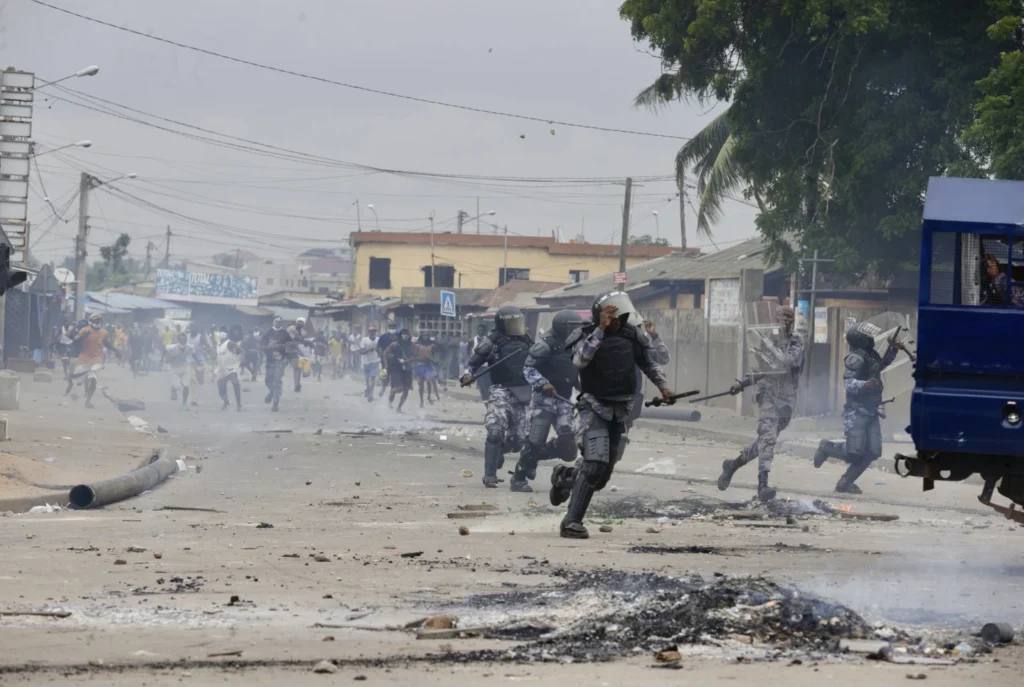Togo’s deepening political crisis has drawn concern from the Economic Community of West African States (ECOWAS), as the bloc calls for restraint and dialogue following deadly protests that rocked the country.
The ECOWAS Commission issued a formal statement on a social media platform X after days of silence during the peak of the unrest. “In the interest of social cohesion, the ECOWAS Commission calls for restraint and urges all stakeholders to favour dialogue,” the post read. It added that the Commission “remained available to contribute to efforts to preserve social peace in the Togolese Republic.”
The demonstrations, which were triggered by a controversial constitutional reform, led to at least seven deaths following a violent crackdown by police. Protesters, largely made up of youth movements and opposition groups, took to the streets demanding an end to the 58-year rule of the Gnassingbé family. Civil society organizations have described the state response as excessive, citing tear gas, batons, and arbitrary arrests as tactics used to suppress demonstrators.
The current president, Faure Gnassingbé, assumed power in 2005 after the death of his father, Gnassingbé Eyadéma, who had ruled the nation since a 1967 military coup. Over the years, the family has entrenched its hold through amendments to the constitution, controversial elections, and the repression of dissent.
In 2019, President Gnassingbé scrapped presidential term limits without holding a national referendum, a move that has long been perceived as undemocratic. In a further shift, the government introduced a parliamentary system in 2025, eliminating direct presidential elections. Under this system, Faure now occupies the newly created position of President of the Council of Ministers, which carries no term limits, essentially allowing him to maintain power indefinitely.
Togo’s Regime Reshapes System For Total Control
The ruling Union for the Republic (UNIR) party maintains dominance in both parliament and the senate, often through elections that opposition parties claim are rigged or manipulated. Reports of protest bans, media censorship, and arrests of activists have been consistent features of Togo’s political landscape.
The recent protests were organized with backing from seven opposition parties and various civil society groups. Protesters demanded Faure’s resignation, the release of political prisoners, and a return to constitutional democracy. While opposition leaders have hailed the resilience of the people, the government’s refusal to engage meaningfully has fueled anger and intensified calls for change.
The use of force during the protests has drawn condemnation from both human rights organizations and regional observers. Security forces reportedly beat demonstrators, detained opposition figures, and fired tear gas into crowds. The scenes have sparked renewed international criticism of Togo’s human rights record and democratic backsliding.

Togo’s economic troubles have further inflamed tensions. Citizens are grappling with rising inflation, high unemployment, and declining living standards. Critics argue that these issues are rooted in governance failures and rampant corruption under the Gnassingbé regime. The concentration of power and resources within the ruling elite has left many feeling disenfranchised and abandoned.
Observers say Togo’s situation reflects a wider trend in parts of Africa, where dynastic and authoritarian rulers manipulate legal frameworks to extend their rule, often at the expense of democracy and civil liberties. In Togo, the consolidation of executive power through parliamentary rule and institutional repression has pushed the nation to a dangerous crossroads.
Whether ECOWAS and the broader international community will take concrete steps beyond appeals for dialogue remains to be seen. For many Togolese, the events of late June represent both a breaking point and a renewed cry for freedom.
READ ALSO: Declare Emergency or Galamsey Will Persist – Nyaho-Tamakloe Warns























